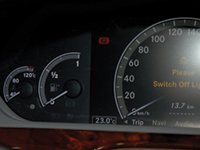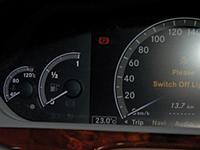How cold weather affects fuel consumption
(NC) — If there's one thing Canadians know how to do, it's drive in the winter. But did you know it's a scientific fact that winter driving costs more?
Here are some facts about fuel consumption and winter driving you may not know:
• Expect to use more fuel in the winter. The U.S. Environmental Protection Agency found that a drop in temperature from 24°C to 7°C increased fuel consumption in urban commutes by 12 to 28 percent for eight different vehicles tested. For a vehicle that typically achieves a 500 km range on a full tank of fuel, this represents a loss of 60 to 140 km per fill-up during the winter months.
• Aerodynamic resistance is greater in the winter. Cold, dry, winter air is about 12 percent denser than warm, humid, summer air, increasing highway fuel consumption by about 1.3 percent in the winter. The average wind speed is also higher in the winter, which contributes to increased aerodynamic resistance and fuel consumption.
• Winter roads create difficult driving conditions. With increased asphalt deterioration and a mix of snow, ice, slush, water, salt, gravel and sand, Canadian roads can be pretty awful in winter and harder to manage. Your vehicle's engine works harder to offset the increased rolling resistance, as your tires have to work to push aside heavy snow and road cover. The snow and ice also increase wheel slippage, which results in higher fuel consumption.
• Winter gas normally has lower energy density. Gasoline composition is seasonally and geographically adjusted based on historical temperature data. A litre of winter gas has less energy content than a litre of summer gas, typically in the range of 1.5 to three percent.
• Winter driving taxes a vehicle's electrical system. Except for air conditioning, your vehicle's electrical loads are normally higher in cold weather due to greater demand from heating, defrosting, head lights and interior lights, heated seats, heated mirrors and increased use of the windshield washer pump. The energy for these electrical loads is provided by the vehicle's electrical system, which obtains power from the engine.
By becoming more aware, drivers can adopt fuel-efficient driving habits for cold weather driving and save their pennies for those precious summer holidays we wait so long for. Natural Resources Canada has posted some cold weather driving tips at www.vehicles.nrcan.gc.ca.
Comments
There are 0 comments on this post













